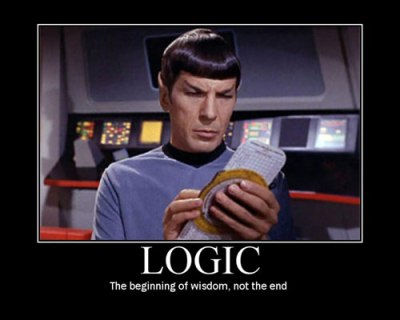I'm curious. I just got done commenting on my Johari window and the fact that I'm overwhelmingly seen as irrational. While I'm a bit surprised because I haven't necessarily made the same self-assessment, it does make sense because in general I've always viewed systems of logic as unnecessarily limiting man-made constructions. I value the order and coherence some if this/then that can bring to an expression, but when a perspective of logic is adhered to strictly and anything veering from conceived or understood rules of logic is judged as worthy of disregard, then I feel sad about losing the value of that discarded thought. Plus, to be honest, the rules simply bewilder me and so it's to my psychological advantage to devalue them.
So as I was considering this irrationality that consumes my being, I kept interchanging the word logic for rationality. I wonder though, is that mix-up just another facet of my ignorance in this realm?
Can anyone explain to me what the nuanced differences between logic, reason, and rationality is? I guess I'd like to understand better my deficiency and consider more whether I want to do anything to improve it.
Also, I'm curious about how a skill I think I have falls into the realm of logic/reason/rationality. I think I have a fair ability to look at a problem, pick out the elements of the problem that if I work at a bit can loosen the knot and provide new solutions or insight. I think I'm also fairly good at noting patterns of behavior, inconsistencies, and contradictions. So, (if I actually possess what I think I possess) how does this fit in the logical/rational realm?
So as I was considering this irrationality that consumes my being, I kept interchanging the word logic for rationality. I wonder though, is that mix-up just another facet of my ignorance in this realm?
Can anyone explain to me what the nuanced differences between logic, reason, and rationality is? I guess I'd like to understand better my deficiency and consider more whether I want to do anything to improve it.
Also, I'm curious about how a skill I think I have falls into the realm of logic/reason/rationality. I think I have a fair ability to look at a problem, pick out the elements of the problem that if I work at a bit can loosen the knot and provide new solutions or insight. I think I'm also fairly good at noting patterns of behavior, inconsistencies, and contradictions. So, (if I actually possess what I think I possess) how does this fit in the logical/rational realm?


